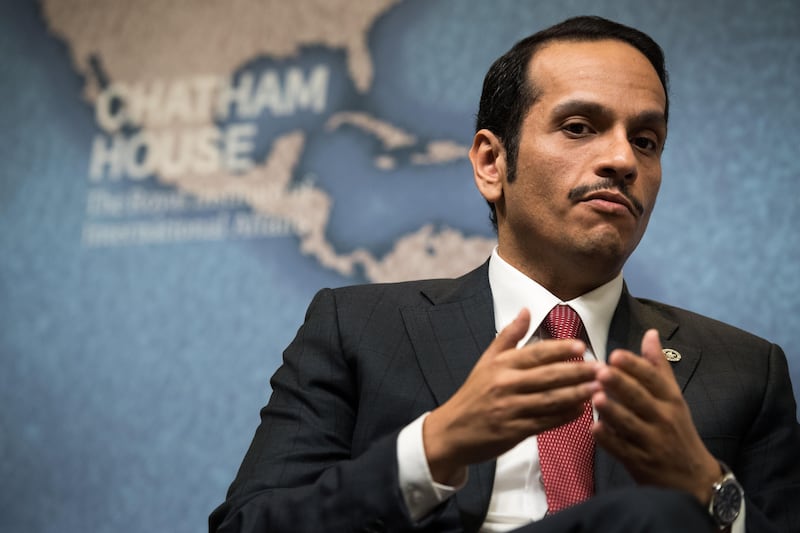LONDON // The audience included a former head of MI6 and a handful of ex-ambassadors. One august figure wore a hand-tied bow tie.
The guest speaker, Sheikh Mohammed bin Abdulrahman Al Thani, the Qatar foreign minister, got a polite reception as he ran through his defence of the country’s stance in the GCC dispute.
The basement room in London’s Chatham House was filled to overflowing. Acknowledging the sensitive careers of some in the room, Robin Niblett, the director of the Royal Institute of International Affairs, pleaded with questioners to expand beyond the enigmatic formula of "a member of Chatham House" when introducing themselves. It blew up in his face when his first pick used just those words for his affiliation. (An internet search later revealed this guest to also be the owner of a Middle East-focused security company.)
It took a burly Scottish bruiser Sir William Patey, the former British ambassador to Riyadh and Baghdad, to break through the mood of studied ambiguity. Are you going to cut off the gas? he demanded, a reference to the Dolphin project that supplies power plants in the UAE.
Sheikh Mohammed denied Doha would escalate the dispute by taking this drastic step. But he went on to acknowledge that on his whistle-stop tour of European capitals, Qatar’s economic clout was on the table. “We are using whatever economic power we have as leverage on these countries,” he said.
After almost an hour of prepared remarks and questions, the reality of Qatar’s diplomacy was laid bare. Another guest, an elegantly dressed financier, asked about the recent Qatari pledge to cushion the process of the British departure from the European Union with additional state-directed investment worth billions of pounds. She was told that Qatar had invested £40 billion (Dh146.9bn) in Britain and would keep its pledge to pour in more regardless of "whatever steps are taken by the UK".
But there were sticky moments for the foreign minister. When confronted with questions over Qatar's failure to take the common GCC stance on terrorism and financing, Sheikh Mohammed admitted some residents were indeed listed by the United Nations as members of terror organisations. He suggested that could mean these individuals had been put under 24-hour surveillance and had their bank accounts frozen. Seeking to make a debate about the politics of these men, Sheikh Mohammed then claimed Qatar’s accusers were playing with “labelling” — in effect disputing the very idea that there was a blanket definition of terrorism
Challenged over his use of the term "blockade" to describe the boycott of Qatar, which is seen by the UAE, Saudi Arabia and Bahrain as a non-compliant member of the GCC, Sheikh Mohammed cited the cost of rerouting the country’s supply lines to Iran and Turkey. He later conceded that there were indeed routes in and out of Qatar's ports and airports but went on to defend his terminology anyway: “I’m sorry we cannot call it a boycott.”
Asked what contribution Turkish troops could make to Qatar’s defence that US troops at Al Udeid airbase could not, the foreign minister merely turned the tables. ”Why is it harmful for the Gulf that we have Turkish military co-operation?” he asked.
As the words of one member of the Chatham House staff suggested when the audience filed out the door, the address left many questions hanging: “It was interesting, if a little weird.”







